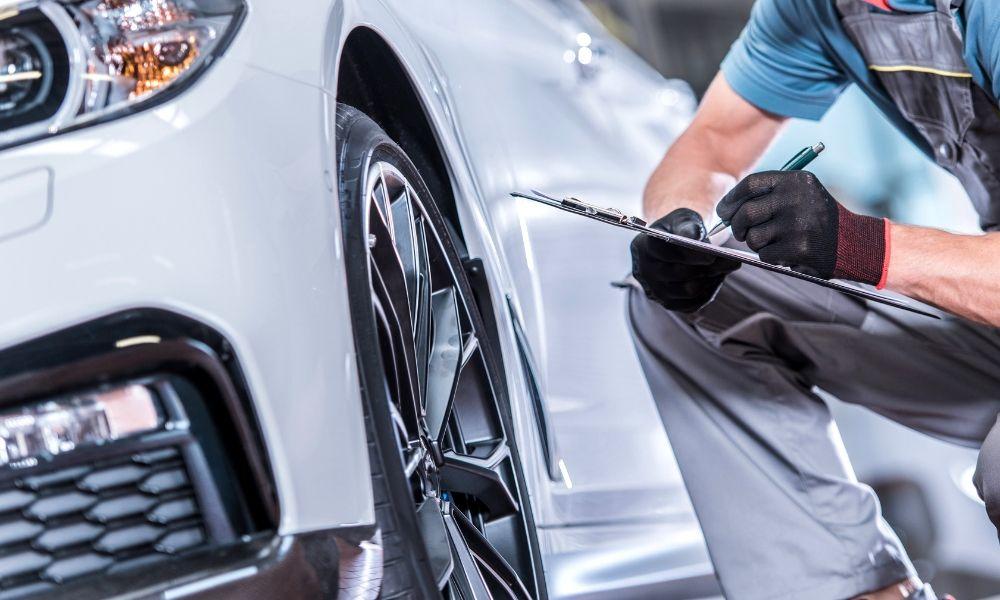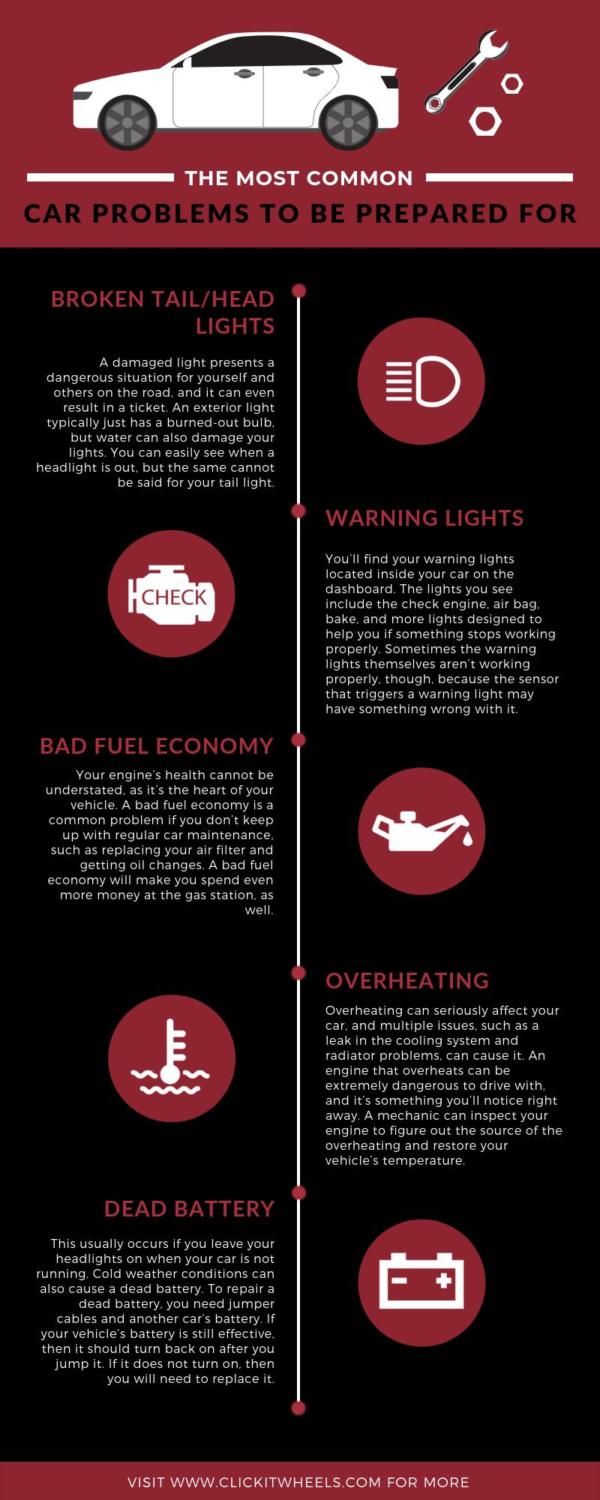
Driving a car and making it your own can be a great delight. Part of owning a vehicle, however, is dealing with the issues that can make it unsafe for you and your passengers. Some repairs you can do on your own, and others may require a mechanic’s help who can get a better look at it. The point is to be prepared for the most common car problems and know how to handle them.
Broken Tail/Head Lights
A problem you may come across is broken tail or head lights. A damaged light presents a dangerous situation for yourself and others on the road, and it can even result in a ticket. An exterior light typically just has a burned-out bulb, but water can also damage your lights. You can easily see when a headlight is out, but the same cannot be said for your tail light. Every now and then, have someone check the lights while you brake.
Warning Lights
You’ll find your warning lights located inside your car on the dashboard. The lights you see include the check engine, air bag, bake, and more lights designed to help you if something stops working properly. Sometimes the warning lights themselves aren’t working properly, though, because the sensor that triggers a warning light may have something wrong with it. You’ll need to seek a professional’s help who can reset your warning lights if you suspect they don’t work properly.
Bad Fuel Economy
Your engine’s health cannot be understated, as it’s the heart of your vehicle. A bad fuel economy is a common problem if you don’t keep up with regular car maintenance, such as replacing your air filter and getting oil changes. A bad fuel economy will make you spend even more money at the gas station, as well.
Flat Tires
There are a few ways, such as driving on pot holes, that can cause a flat tire, and they’re often unpredictable. With that being said, you should still know how to change a flat tire on your own when the time comes. You should also check for car tires on sale if you don’t already own a spare tire. A spare tire is necessary to have on hand if you ever get a flat tire.
Rusting
Rust can damage very important parts of your vehicle, such as your brakes and engine. The main reasons rust forms are not properly cleaning your vehicle and age; you can act to prevent rust to a certain degree with regular car washes. If a car part suffers from extensive rust, though, then you should replace it because it’s a threat to your overall safety.
Bad Brakes
Brakes are one of the most important parts of your vehicle, but unfortunately, they can get damaged from time to time, and the damage’s severity ranges. A repair may simply mean getting new brake pads, or the damage may mean you need to replace the brake lines. If you hear your brake’s squeaking, or you feel a delayed stop, you should not wait to get your brakes checked out.
Poor Alignment
If you drive your vehicle and notice you swerve to a certain side, your alignment is the likely culprit. This tends to happen when you drive over a bump while accelerating. An easy way to check if your car has poor alignment is to let the steering wheel go for a moment as you drive to see if it stays in the middle. If it doesn’t, that means you need to repair it.
Overheating
Overheating can seriously affect your car, and multiple issues, such as a leak in the cooling system and radiator problems, can cause it. An engine that overheats can be extremely dangerous to drive with, and it’s something you’ll notice right away. A mechanic can inspect your engine to figure out the source of the overheating and restore your vehicle’s temperature.
Poor Emissions
To improve the environment, many states require cars to get an emissions test to register a vehicle. There are several ways you can fail the test, and you will most likely have to get some repairs done before you can pass. The repairs may vary, and the emissions tester usually tells you which repairs you need to get. One way to avoid a failed emissions test is to have someone regularly check your exhaust system for issues.
Cracked Windshield
A cracked windshield can be a huge annoyance, and a costly repair, if it occurs. One way this happens is when you change out your wipers and accidently whack the windshield. Weather conditions can also cause a cracked windshield. Most times, you need a technician to repair the damage.
Broken AC/Heat
To remain comfortable in your car in the summer and winter months, it’s necessary to have air conditioning and heat that work. These features can stop working for a few reasons. A leak in the coolant line or an issue with the compressor can affect the AC unit. Low coolant, broken controls, heater core issues, and more can damage your car’s heater. It’s incredibly dangerous for you and passengers to not have heat in the winter, and it can make your car undrivable.
Air Bags
There was a time when air bags weren’t even in cars. Airbags are an essential safety feature in your vehicle, and you want to make sure they always work. If your warning lights work properly, then an air bag light should come on to indicate when this feature isn’t working. Don’t take any chances, and get it repaired as soon as possible.
Dead Battery
Perhaps the most common car problem is a dead battery. This usually occurs if you leave your headlights on when your car is not running. Cold weather conditions can also cause a dead battery. To repair a dead battery, you need jumper cables and another car’s battery. If your vehicle’s battery is still effective, then it should turn back on after you jump it. If it does not turn on, then you will need to replace it.
Also read:
